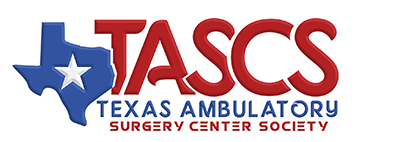International Infection Prevention Week (IIPW) reminds us that while our industry was turned upside down and continues to be challenged by COVID-19, basic practices to prevent procedure- and surgical site-related infections remain critical to protecting patients and maintaining the reputation of ambulatory surgery centers (ASCs) as providers of safe, high-quality care.
Consider using this year's IIPW as an opportunity to put infection prevention and infection control in the spotlight in your ASC. Encourage staff members to take this week to further step up their infection prevention and control efforts and then hold themselves accountable to the highest level of performance in these areas going forward. Let's review some of the key facets of a successful ASC infection prevention and control program.
Hand hygiene before and after patient care — including prior to donning gloves as well as after handling items and touching the environment — remains the most important step in preventing transmission of infections. Ongoing auditing of hand hygiene with data to demonstrate compliance remains critical for monitoring and improving this aspect of a well-rounded infection prevention and control program. Education on hand hygiene with detailed documentation should also be ongoing. The pandemic has substantially improved hand hygiene practices overall. Sustaining these enhanced practices is vital.
In addition to enhanced hand hygiene practices, the pandemic put an increased focus on environmental cleaning and disinfection. This step in the ambulatory surgery arena has always been essential to infection prevention and remains as such. Effective environmental services include thorough room turnover after the patient exits, focusing on product instructions, particularly the dwell or “wet time” as this is key to successful disinfection of surfaces and reusable items. Terminal disinfection should be monitored routinely, especially if conducted by an external service.
Infection prevention practices involving the patient include appropriate hair removal prior to surgery, skin prep with an emphasis on following the manufacturer’s instructions for product selection, prep technique and dwell time on skin, removal of the prep product if indicated, and timing of draping. All are vital to preventing skin and soft tissue and surgical site infections.
Additional practices that are scientifically proven to enhance infection prevention programs include preoperative skin decolonization with antiseptic products such as chlorhexidine (skin decolonization), isopropyl alcohol or povidone iodine (nasal decolonization); preoperative antibiotic selection and timing, glycemic control, normothermia, and oxygenation.
Everchanging, evidence-based science affords us the opportunity to review our practices on an ongoing basis and make changes to improve and enhance patient safety programs. While IIPW may only be a single week, ASCs owe it to their patients to treat infection prevention as a year-round priority by following infection prevention and control best practices day in, day out.
Learn more about Infection Control Consulting Services (ICCS) at ICCS-home.com. To contact Phenelle Segal, email [email protected].

